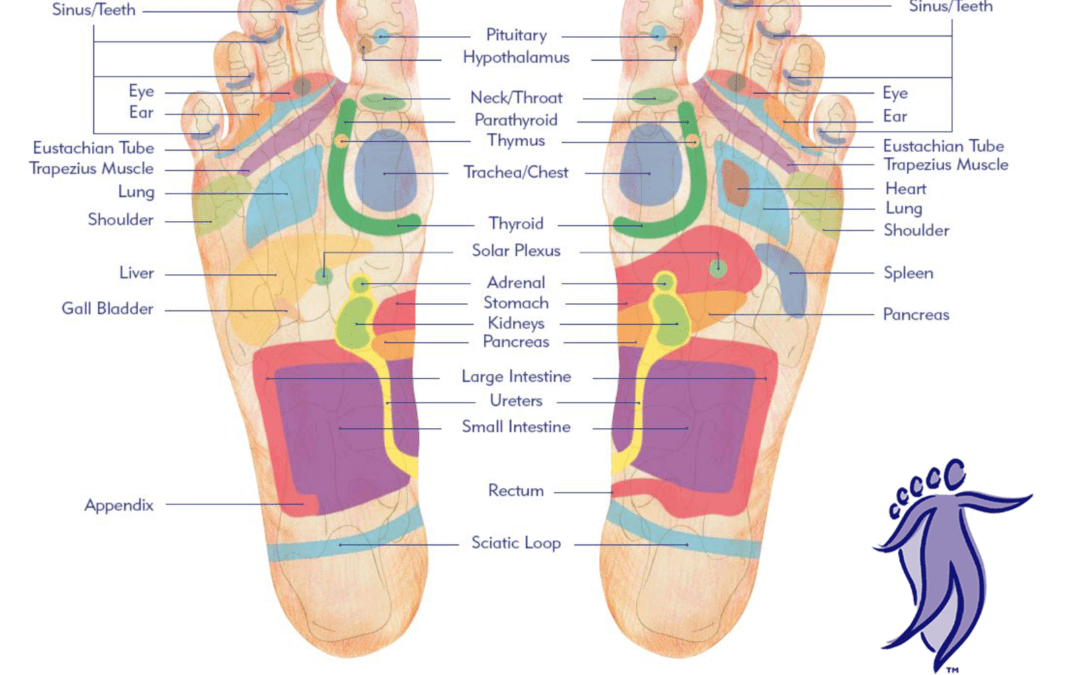This blog post is a reproduction of an article I was asked to write for the Cystitis and Overactive Bladder Foundation (www.cobfoundation.org).
Before I go any further I think it’s important to tell you that this article isn’t intended to promote reflexology as some kind of wonder cure for chronic bladder conditions. Reflexology is just one of a range of complementary therapies which may help you to feel better than you would without it and may be worth trying to see if it can help you. It works on a very individual level and whilst many clients feel it benefits them, some don’t.
I’ve been a reflexologist for over 10 years and in that time have worked with clients with chronic health conditions including Fibromyalgia, CFS, IBS and Interstitial Cystitis. Most of these clients have found that reflexology helps them in some way. For some it seems to reduce the intensity of their symptoms; others find it helps them feel mentally stronger and more able to cope with living with a chronic condition and others still find it helps them on both levels. Client feedback suggests that a key benefit of reflexology for those suffering with a chronic health issue is that it helps them to feel like they’re taking some control back from their condition.
The History
Reflexology is based on ancient principles (evidence of forms of reflexology being practiced in ancient Egypt, amongst Native Americans and in Traditional Chinese Medicine has been discovered), but modern-day reflexology was developed in the 1930s by an American physiotherapist called Eunice Ingham. Reflexology can be performed on the hands and face but most reflexology treatments are focused on the feet (although hand reflexology can be very useful for self-help). Its underpinning premise is that every part of the body is represented by a specific point on the feet, which we call a reflex, and it was Eunice Ingham who painstakingly mapped out these reflexes through years of trial and error, to provide us with the foot maps we still use today.
How it works
When working well our body is in a state of homeostasis; where everything flows as it should and we are perfectly balanced. Illness is the consequence of changes in the balance within our bodies. In reflexology we talk of finding and correcting imbalances and restoring homeostasis. Wherever there is an imbalance in the body, the corresponding reflex is often grainy or lumpy in texture and can feel a little tender when precise pressure is applied. We attempt to correct these imbalances by systematically working through all of the reflexes, regardless of what condition the client is presenting us with, looking for parts of the body that are out of balance and ‘working out’ these imbalances using a range of precise massage and pressure techniques. For this reason reflexology is truly holistic. We believe that every part of the mind and body is connected so it makes no sense to just focus our treatments on the areas of the body where symptoms are present. We work the ‘whole body’ (and mind) in an attempt to restore balance to the areas where it’s needed.
Reflexology is thought to work in the following ways:
- It involves the physical stimulation of many of the 7000 nerve endings in our feet – sending messages directly to the brain. In fact research recently conducted in Japan found evidence that stimulating reflexes on the foot did indeed prompt activity in the areas of the brain relating to the parts of the body the reflexes represented.
- It can help to stimulate the circulation.
- It provides the therapeutic benefits of touch – something which has been widely researched and proven to be beneficial on a physical and psychological level.
- It provides emotional support via the therapeutic relationship between therapist and client. Many clients feel they can tell their therapist things that they don’t discuss with anyone else.
- It can make clients feel more empowered; increasing their feeling of taking control of their condition.
Reflexology may be beneficial to people living with chronic bladder conditions because it:
- aids relaxation and can promote feelings of physical and emotional well-being.
- may help to ease symptoms through the stimulation/sedation of the nerves that link to your urinary system and whatever other parts of your body are having the most impact on your condition eg. The bowel where IBS is also present.
- provides you with some ‘time out’ which is entirely focused on your own well-being.
- provides you with the time and space to talk in detail about how you’re feeling; if you want to.
How many treatments would I need?
This is a question I get asked frequently and one to which there is no easy answer. Not only does everyone respond differently to reflexology, but also there are so many influencing factors such as how long you’ve had your condition and what other health issues you have. Anecdotal evidence from other members of the Association of Reflexologists suggests 6 or 7 weekly sessions followed by ongoing fortnightly or monthly sessions (depending on your response) may be advantageous, but there are no ‘one size fits all’ solutions in complementary therapy. We treat everyone as an individual and your reflexologist should be able to devise a treatment plan that’s likely to work best for you (including your financial circumstances).
Finding a reflexologist
If you’re interested in giving reflexology a go, firstly you should be looking for a clinical reflexologist who has had sufficient training to be able to work with you. There are plenty of people out there who have done a weekend course in foot massage and are allowed to call themselves reflexologists, but clearly aren’t. Members of The Association of Reflexologists (www.aor.org.uk), Professional Reflexology (www.professionalreflexology.org) and the British Reflexology Association (www.britreflex.co.uk) will all have been trained to the highest standards and the websites I’ve listed will have ‘find a reflexologist’ search functions. Don’t feel obliged to go with the first reflexologist you talk to (I would always recommend a phone conversation). Phone around a few, talk to them about your condition and their qualifications and experience and go with the one who ‘feels right’ for you. Most importantly don’t be guided by their charges. Cheapest is not always best (and neither is most expensive). If cost is an issue, many reflexologists are happy to negotiate on their standard fees where there are genuine financial issues and most offer discounts for multiple treatments. Some even have a policy of including a small proportion of non-paying clients in their client base.
If you’d like to find out more about reflexology, each of the websites I’ve mentioned in this article contain pages of useful information. Of course you can also call any of your friendly local reflexologists for a chat, without any obligation.


Recent Comments